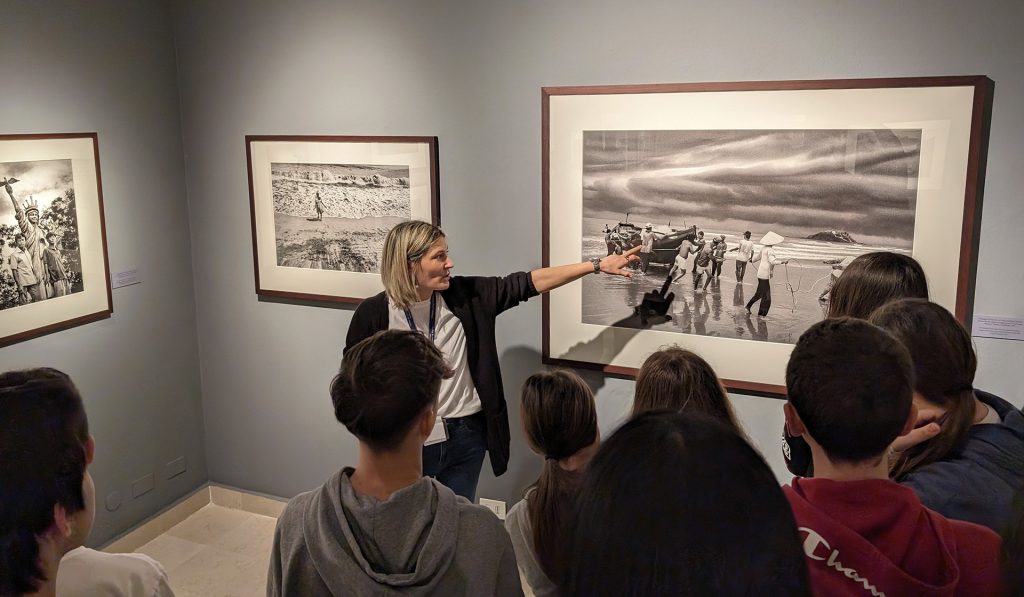Sebastião Salgado. Exodus – Umanità in cammino, curated by Lelia Wanick Salgado, consists of 180 photographs and is divided in four sections: Migrants and refugees: the survival instinct; The African tragedy: a continent adrift; Latin America: rural exodus, urban unrest; Asia: the new urban face of the world.
The last room of the exhibition will be dedicated to children portraits, thus paying tribute to the millions of kids who are currently living in slums, refugee camps and rural settlements in Latin America, Africa, Asia and Europe.
The exhibition will be complemented by several initiatives such as meetings, conferences, musical moments and a series of workshops for schools and families. It will be part of the events organised for the Festival of Cultures, scheduled in Ravenna from 12 March to 20 July 2024, and will symbolically open on 21 March, the International Day for the Elimination of Racial Discrimination.
In 1993, Sebastião Salgado began his photographic, physical and existential journey into the galaxy of migration. For six years, the Brazilian reporter has travelled across four continents to capture magnificent moments like departures and landings, as well as the life in refugee camps where millions have an uncertain fate. Since then, the world map appears to have changed, but the exodus of entire populations is as relevant as ever, and the status of migrants and refugees represents an ever-growing global scenario.
Already in 1999, Salgado wrote: “Today more than ever, I feel that all mankind is one. We have differences in colour, language, culture and opportunity, but people have similar feelings and reactions. We hold the key to the future of humanity, but we must understand the present. These photographs show a fraction of our reality. We cannot afford to look the other way”.
As part of the Festival of Cultures, Salgado’s photographs will be on display at MAR, the Art Museum of Ravenna, from 22 March to 2 June 2024, in a major exhibition organised by the Municipality of Ravenna – Department of Culture and Mosaic and Department of Immigration, Gender Policies and Culture – in collaboration with Contrasto and with the contribution of the Emilia-Romagna Region, Fondazione del Monte di Bologna e Ravenna, and Marcegaglia.


